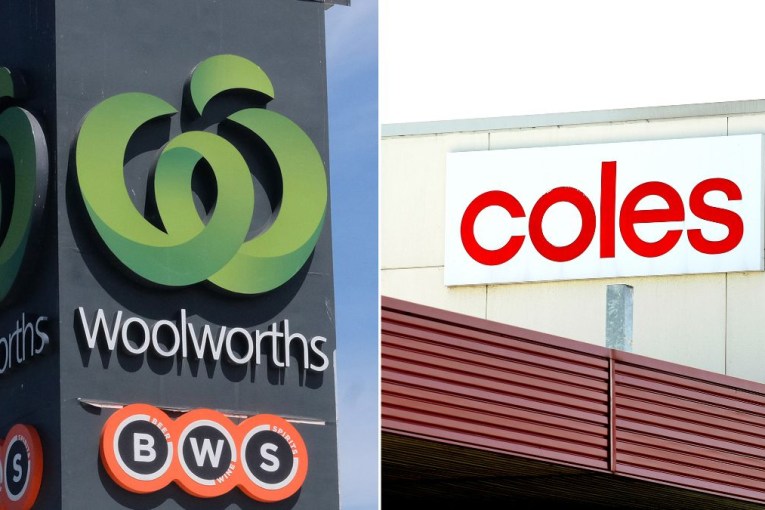Threadbare ethics of Australia’s fashion brands shown in charity group’s report

The shameful state of Australia’s fashion industry has been revealed in a new report that finds nearly half of the nation’s most popular brands do not know where their raw materials come from.
Charity organisation Baptist World Aid released its annual Ethical Fashion Guide on Tuesday, and called on brands to fix their ethical standards for the sake of 60 million garment workers around the world.
A total of 581 fashion and footwear brands were given a score out of 100 based on their performance in six key areas:
- Tracing beyond final stage
- Remediation of labour exploitation when found
- Payment of living wages
- Support for worker voice and empowerment
- Use of sustainable fibres
- Commitment to climate action.
It said the total average score was just 29.25 out of 100, a decline from 33.6 per cent in 2021.
New companies “pulled down the average”, with companies assessed for the first time scoring an average of just 9.7 per cent, the report states.
And 40 per cent of brands had no idea where their raw materials come from. Those same 40 per cent also had no clear plans to trace the origins of their materials.
As to why so many companies are completely unaware of their supply chains, the report said it was largely due to their complex production models.
“The majority of companies utilise a Free on Board (FOB) production model, and so rely solely on their final-stage suppliers to source all fabrics and trims,” it said.
“Companies sourcing through a buying agent – a third party managing factory relationships for them – are removed another step further.”

Almost half of Australia’s top fashion and footwear brands could not trace where their raw materials came from. Photo: Getty
Facing the numbers
Ethical underwear brand Mighty Good Basics had the highest score out of the report with 86 points – 18 points higher than the next best performer, outdoor clothing company Patagonia.
Adidas, Country Road Group, Forever New, Lululemon, Kmart, Target Australia and Kathmandu were among the companies in the top 20 per cent.
The report acknowledged companies who had most improved their score in the past year, among them were: RM Williams, Nobody Denim, Rip Curl and Universal Store.
At the other end of the spectrum, 2XU, Ngahuia Group (Hannahs, Hush Puppies, Number One Shoes), Nine West, Novo Shoes Pty Ltd, Sheike and Windsor Smith all scored zero points based on publicly available information.
“The end goal for the fashion industry is clear: 100 per cent traceability through all tiers of the supply chain, for all products,” the report states.
“Legislation around the globe requires companies to report on modern slavery risks, like Australia’s Modern Slavery Act, or the European Union’s proposed Corporate Sustainability Due Diligence Directive.
“As these laws are reviewed and strengthened, companies doing the bare minimum to trace their supply chain will be held to account, because an effective, comprehensive risk assessment cannot be conducted without knowing where materials come from.”
Footwear a ‘step behind’
The report reveals a clear gap between standards for fashion and footwear brands, indicating that the latter were a “step behind”.
Footwear companies were assigned a significantly lower score in the report, with an average score of 22.62, compared to 32 for clothing companies.
Footwear companies also stumbled when it came to knowledge of their supply chains.
The report states a total of 56 per cent of footwear companies “lack knowledge of names and addresses for any of their raw material suppliers”.
This is a stark difference to the knowledge of clothing companies, with 3.71 per cent falling in the same category.

Footwear companies lag fashion brands when it comes to ethical standards. Photo: Getty
None of the footwear companies analysed could trace the origins of their raw materials, compared to 11.4 per cent for clothing companies.
Footwear companies were also found to be putting more workers on their production lines at risk.
Just 8 per cent of footwear companies had a process at final-stage factories to respond to child and forced labour human rights violations, compared to 26.7 per cent of clothing companies.
And while 12 per cent of footwear companies were apparently committed to working towards living wages at the final stage of production, none of the companies were able to show evidence that they had done so.
The report said these astonishing figures are likely due to the extraordinary number of steps required to assemble a single shoe – leaving more opportunities for unethical practices.
“Footwear has added complexity due to the large number of components and processes involved in the production of each shoe – up to 65 separate parts requiring close to 360 assembly steps,” it said.
Moving forward
Improving ethical standards is the primary responsibility of clothing and footwear companies, the report states, but consumers also have a role to play.
Five key ways that consumers can bring improvements to the fashion industry include:
- Speak out to brands: Write to brands and ask them to improve their practices. This can be done using Baptist World Aid’s online tool
- Speak out to your social circles: Use your influence among friends and family members to encourage shopping with ethical brands. Clothes swaps are a fun way to put conversations into action
- Speak out to the government: Call on governments to introduce laws that mandate change for workers and the environment
- Make informed purchases: Before making purchases, research the brands you’re buying from, and assess their efforts in mitigating worker exploitation and environmental degradation
- Assess your shopping habits: Think twice before making a purchase. Do you really need more clothes? The most sustainable wardrobe is the one you already have – reduce, reuse, repair and recirculate.








